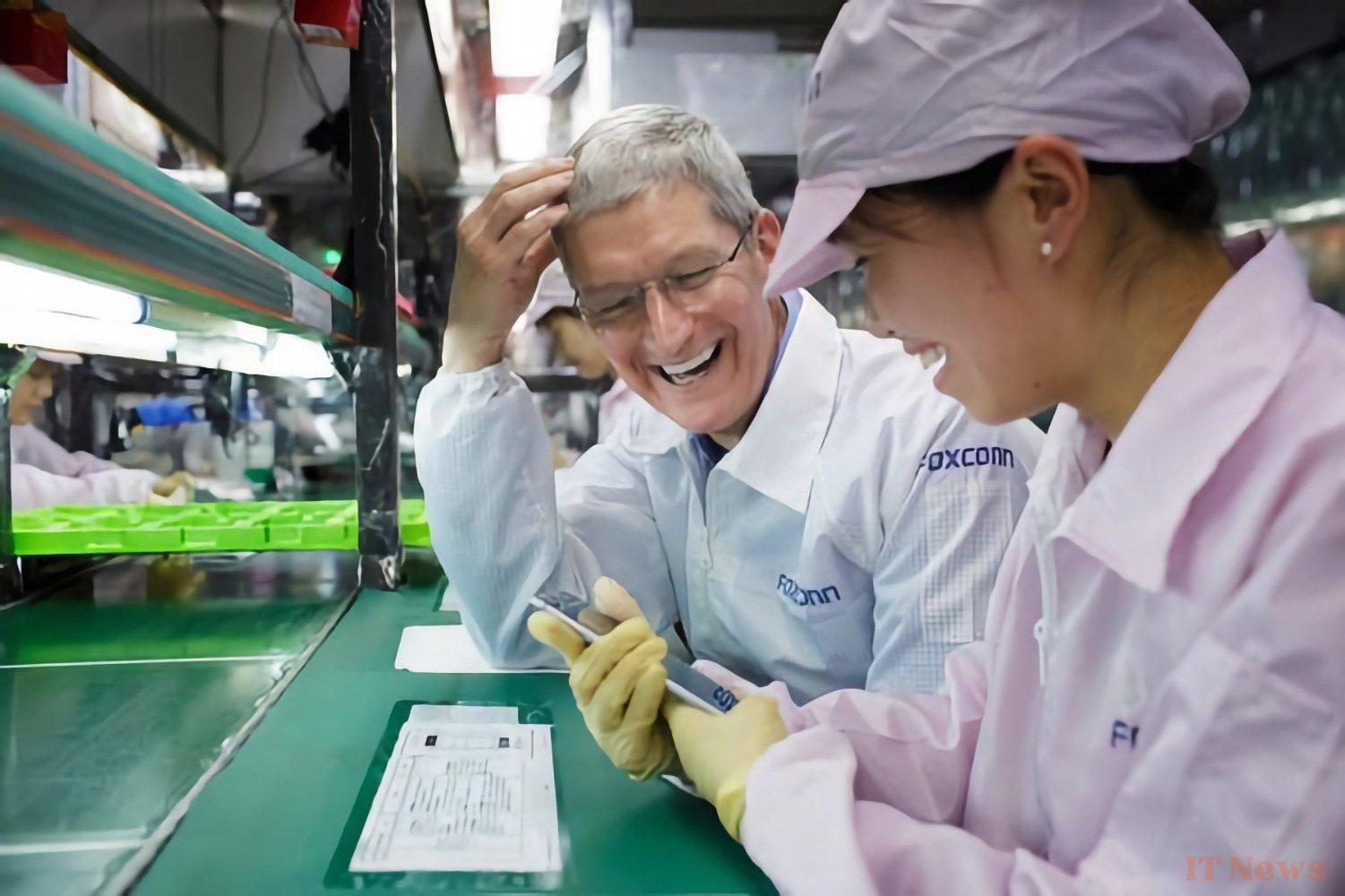The tariffs imposed by Donald Trump on imports of products into the United States came into full effect today. European products are now taxed at a rate of 20%, those from Vietnam at 46%, those from Taiwan at 32%… Some products, such as semiconductors, are excluded, but the American president is still threatening to do so.
Is a "made in the USA" iPhone possible?
Several countries have knocked on the White House's door to begin negotiations, while others are considering retaliatory measures against American products imported into their territory. The European response is expected in the coming hours. Beijing, for its part, was quick to retaliate by imposing equivalent customs duties (34%) on American products, mirroring those decreed by Washington on Chinese goods.
This response provoked the fury of Donald Trump, who, in return, added an additional 50% in customs tariffs, for a total of 104% (knowing that Chinese products were already taxed at 20%). China remained undeterred, announcing today a 50% surcharge on imports of American goods, which will apply tomorrow, Thursday, April 10. That's a total of 84%.
"The United States' practice of increasing tariffs against China is a mistake on top of another mistake, seriously infringing on China's legitimate rights and interests and seriously harming the rules-based multilateral trading system," the country's Customs Tariff Commission said in a statement.
The trade war is well underway, and it will only create losers. Apple could well be the victim of this sinister farce. The computer manufacturer has certainly diversified its production in India and Vietnam, but these countries are also subject to the Trump tariff (admittedly at much lower levels than China). And the majority of iPhones are still manufactured in China.
This competition to see who will have the biggest (tax) is causing a continuous and brutal fall in the company's stock price, which has plummeted by more than 22% since last week. To avoid raising the prices of its flagship products too high and too quickly in its primary market, Apple imported as many devices as possible into the United States as quickly as possible.
A race against time was underway to fill warehouses with premium products before April 9, whether for Apple or other manufacturers like Dell, Microsoft, and Lenovo, reports Nikkei. The Apple company also stocked up by drawing on its inventories in India.
All of this is just a sticking plaster: stocks will eventually disappear, and unless Donald Trump comes to his senses, Apple and others will have to face reality. In other words: passing the bill on to American consumers to compensate for customs tariffs. This is already the case for several companies. And no one is safe from a fit of anger from the American president. He threatened on Tuesday to impose a 100% tax on TSMC's semiconductor imports (currently excluded from tariffs) if the Taiwanese giant did not build factories in the United States.
The solution, in the eyes of the Trump administration, is simple: produce in the United States to avoid tariffs. "[Donald Trump] thinks we have the manpower, the skills, and the resources to do it," White House spokeswoman Karoline Leavitt told the New York Times. "As you know, Apple has invested $500 billion here in the United States," she added. This enormous sum announced in February to buy peace with Donald Trump (it failed) is deceptive: this $500 billion includes past commitments and, for the most part, it is the normal investments that the manufacturer would have made in the United States anyway. And he was aiming broadly, also including the production of content for Apple TV+.
Donald Trump wants to reindustrialize his country with a barrage of tariffs. A challenge in the eyes of the most serious economists: you don't rebuild an industrial ecosystem with a snap of the fingers, you don't reconstitute know-how with a flourish.
Tim Cook explained in 2017: the reason Apple has its production in China isn't so much the labor cost (always lower than in the United States), "it's the level of skill, the concentration of talent in one place, and the very nature of those skills. The products we manufacture require highly advanced tools, extreme precision, and cutting-edge technological mastery. In terms of tools, the expertise available [in China] is particularly advanced."
Apple will unveil its second fiscal quarter figures on May 1. This will certainly be an opportunity for the company to give its thoughts on the current economic situation.



0 Comments